How to fix a slow-draining sink – expert solutions
Expert tips to naturally and easily fix your slow-draining sink

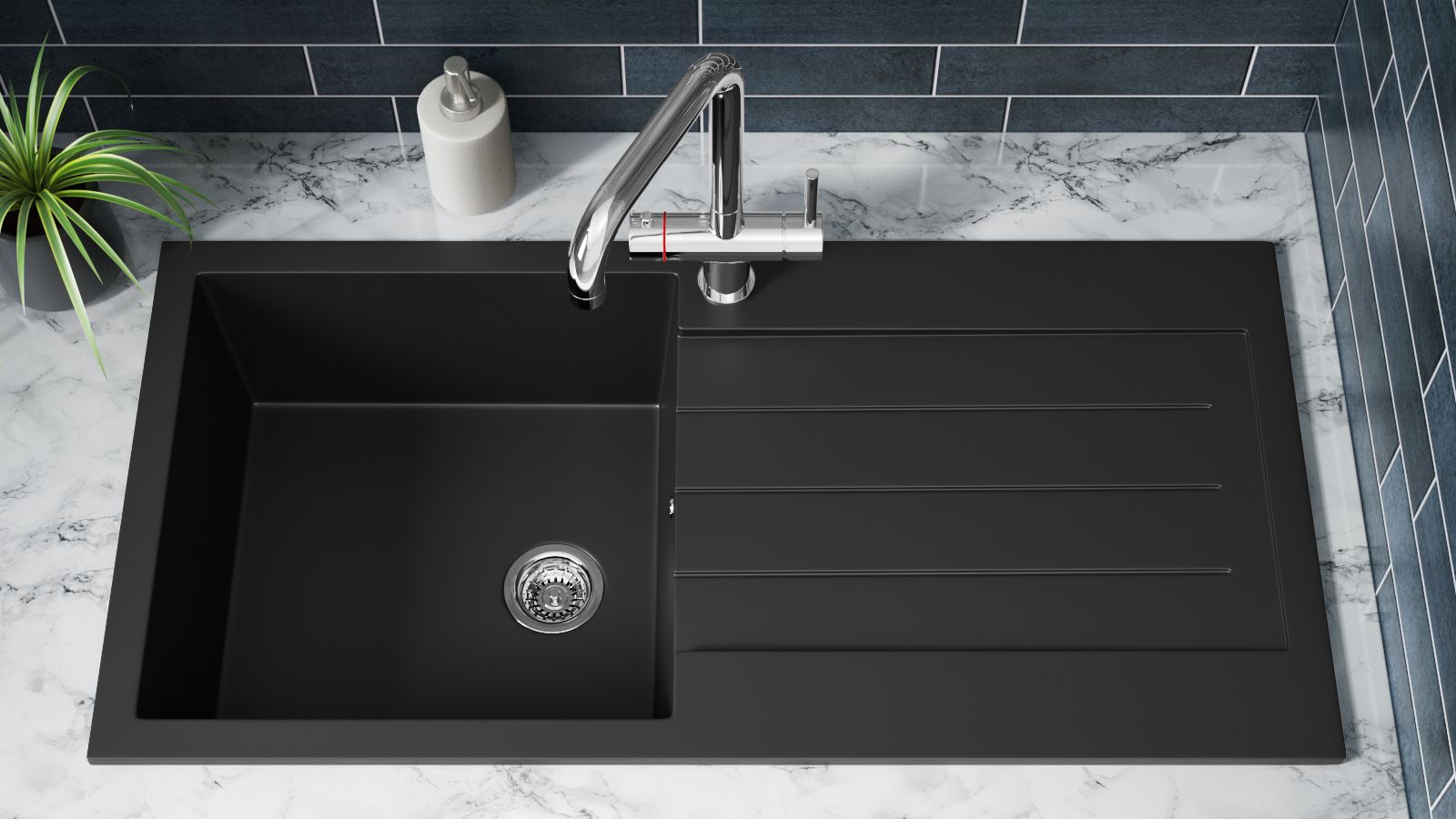
Design expertise in your inbox – from inspiring decorating ideas and beautiful celebrity homes to practical gardening advice and shopping round-ups.
You are now subscribed
Your newsletter sign-up was successful
Want to add more newsletters?

Twice a week
Homes&Gardens
The ultimate interior design resource from the world's leading experts - discover inspiring decorating ideas, color scheming know-how, garden inspiration and shopping expertise.

Once a week
In The Loop from Next In Design
Members of the Next in Design Circle will receive In the Loop, our weekly email filled with trade news, names to know and spotlight moments. Together we’re building a brighter design future.

Twice a week
Cucina
Whether you’re passionate about hosting exquisite dinners, experimenting with culinary trends, or perfecting your kitchen's design with timeless elegance and innovative functionality, this newsletter is here to inspire
Even though it might not seem like a big deal at first, a sink that drains slowly can cause a lot of problems, so it's important to deal with it as soon as the problem arises.
Whether your kitchen or bathroom sink is taking an abnormally long time to drain, this can interrupt your daily routines and lead to a build-up of dirt in your sink that can make cleaning it more arduous.
The first step is to identify the reasons why your sink won't drain, then unclog your sink to get water flowing again. Our experts have recommended the top six ways to fix a slow-draining sink.
How to fix a slow draining sink
'There are several possible causes for a slow draining sink, such as hair, soap scum, grease, food particles, or foreign objects that can clog the drain pipe,' explains Mark Morris, master plumber at Deluxe Plumbers. 'You can use a flashlight and a pair of tweezers or pliers to inspect the drain opening and remove any visible obstructions.'
Remember, before fixing a slow draining sink to take safety precautions, wear gloves when handling debris, and be cautious when using chemicals.
1. Find the cause
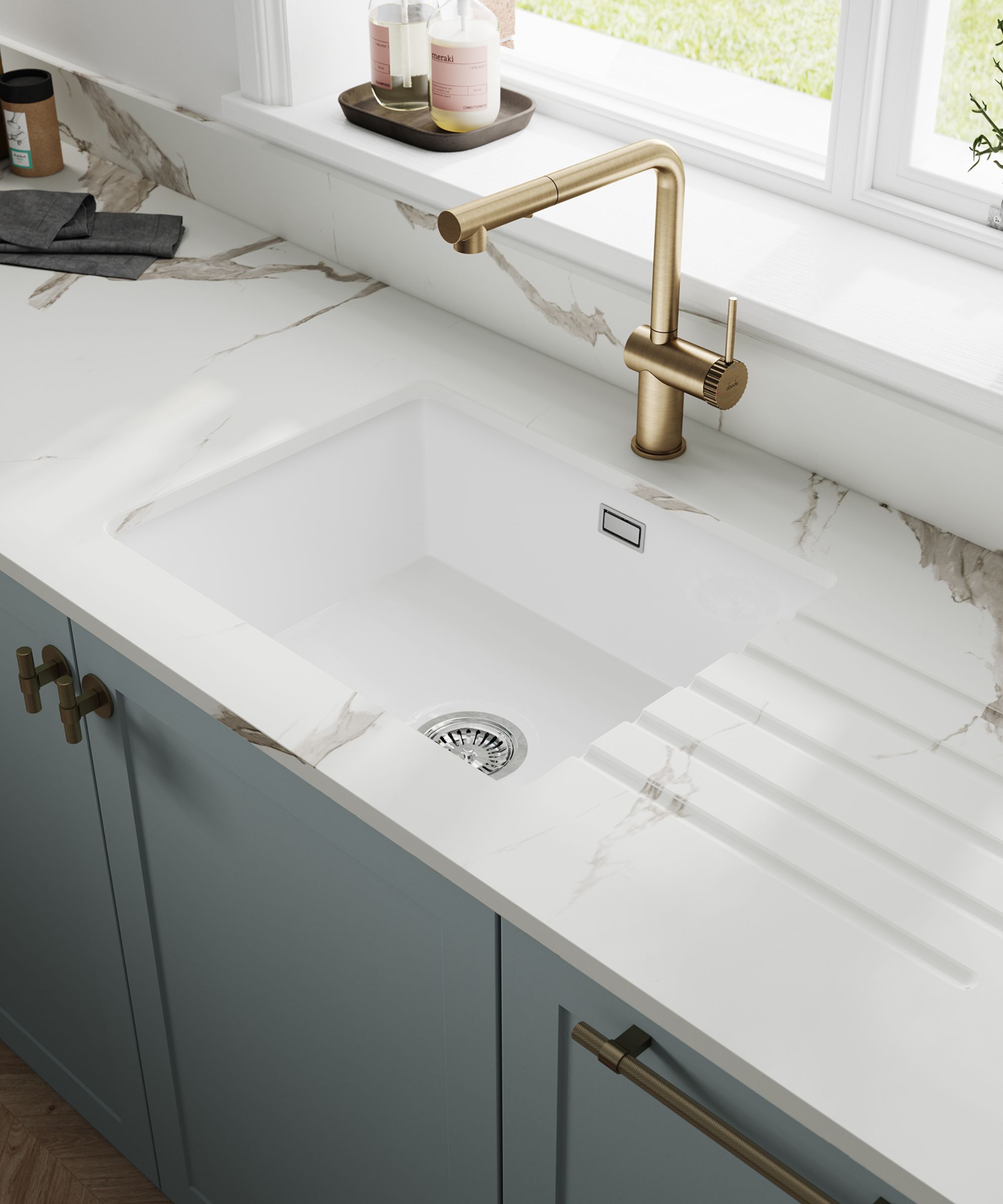
'Before you start any repairs, it's crucial to identify the underlying cause of the slow drain,' recommends Angela Rubin, cleaning expert from Hellamaid.
'A slow-draining sink can result from various issues, such as a clog in the drainpipe, a partially blocked P-trap, or mineral buildup. Start by removing the sink stopper or drain cover to visually inspect the drain for any visible blockages.'
Design expertise in your inbox – from inspiring decorating ideas and beautiful celebrity homes to practical gardening advice and shopping round-ups.

Hellamaid is an award-winning cleaning company in Canada that's been featured on multiple global media brands.
2. Remove debris
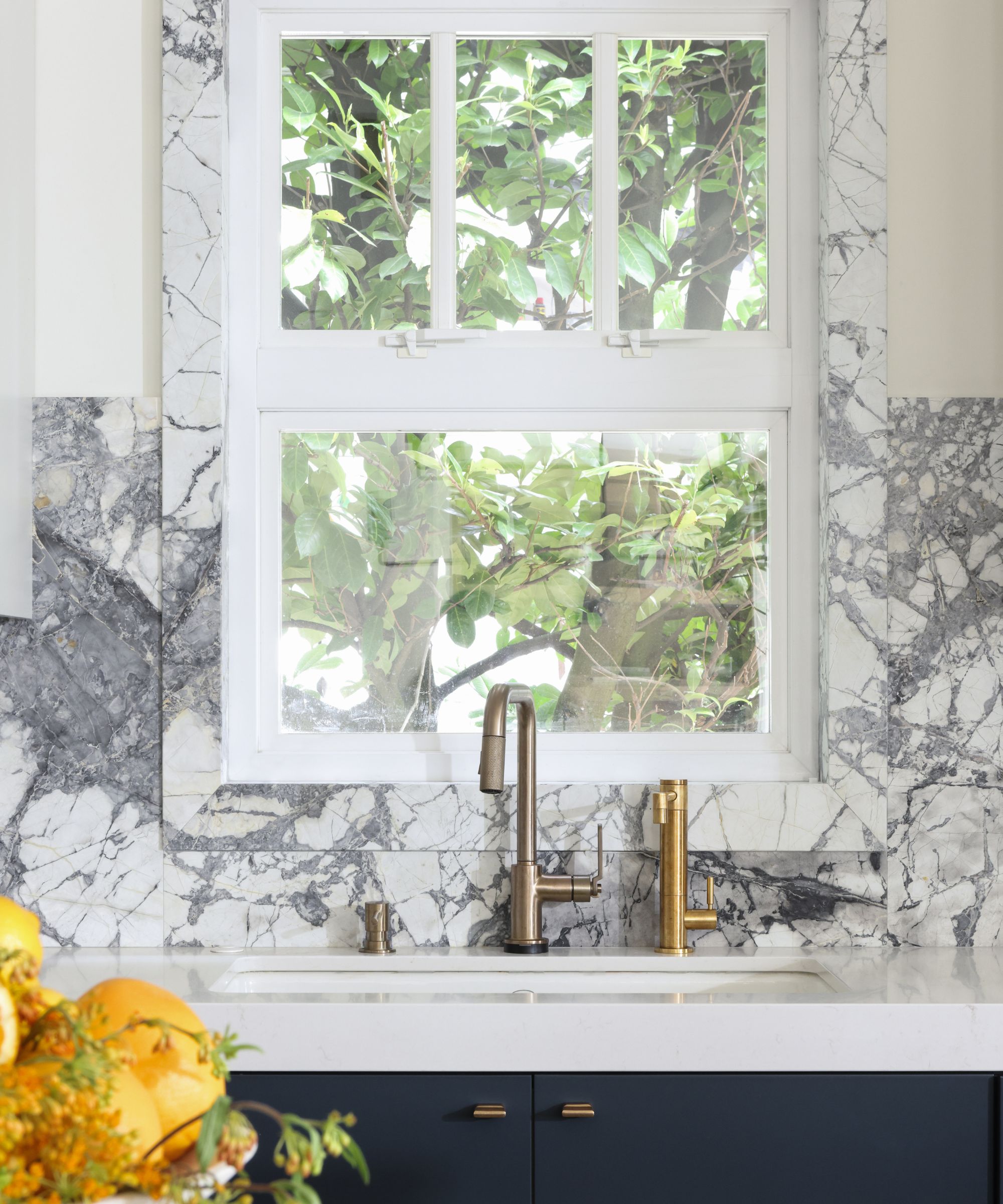
Rich Mullins, founder of H2O Plumbing recommends, ‘Before diving into more complex solutions, begin with the basics. Remove any visible debris from the sink's drain stopper or strainer.
'Sometimes, hair, soap scum, or food particles can accumulate on the surface and hinder water flow. A pair of gloves and a simple cleaning brush can be helpful in this process.’
3. Try the boiling water method

Provided your sink is still draining slowly, Rich Mullins says, 'Boiling water is a simple yet effective remedy for minor clogs.
'Boil a kettle of water and pour it directly into the slow-draining sink. The hot water can help dissolve and dislodge grease and soap scum that may be restricting the flow.'
This is one of the best initial methods to try when unclogging a kitchen sink since it is unlikely to cause any damage to your pipes, and, according to plumbing techinican at Plumbing Lab, Josh Mitchell, 'This helps to melt away any potential build-up, especially from substances like soap or grease that can solidify in the pipes.'
Josh Mitchell adds, 'Prevention is better than cure, so make it a habit to pour boiling water down your drains every couple of weeks.' This should consistently keep your sink draining well.
4. Use natural or chemical drain cleaners

‘The next step to fix a slow draining sink is to use natural or chemical drain cleaners to dissolve or break down any remaining clogs in the pipe,' advises Mark Morris. 'Natural drain cleaners are safer and more eco-friendly than chemical ones, but they may take longer to work.
'Some of the natural drain cleaners you can use are baking soda and vinegar, salt and boiling water, or lemon juice and hot water.
'If boiling water doesn't fully resolve the issue, you can try the baking soda and vinegar method,' advises Rich Mullins. 'Start by pouring half a cup of baking soda into the drain, followed by half a cup of white vinegar. Allow the mixture to fizz for about ten to fifteen minutes, which can help break down organic matter. Then, flush the drain with hot water.'
You can find baking soda and white vinegar at Amazon.
'The fizzing action helps break down the gunk,' explains Josh Mitchell. 'For better results, let the combination sit overnight and then flush with hot water in the morning.'
5. Use a plunger
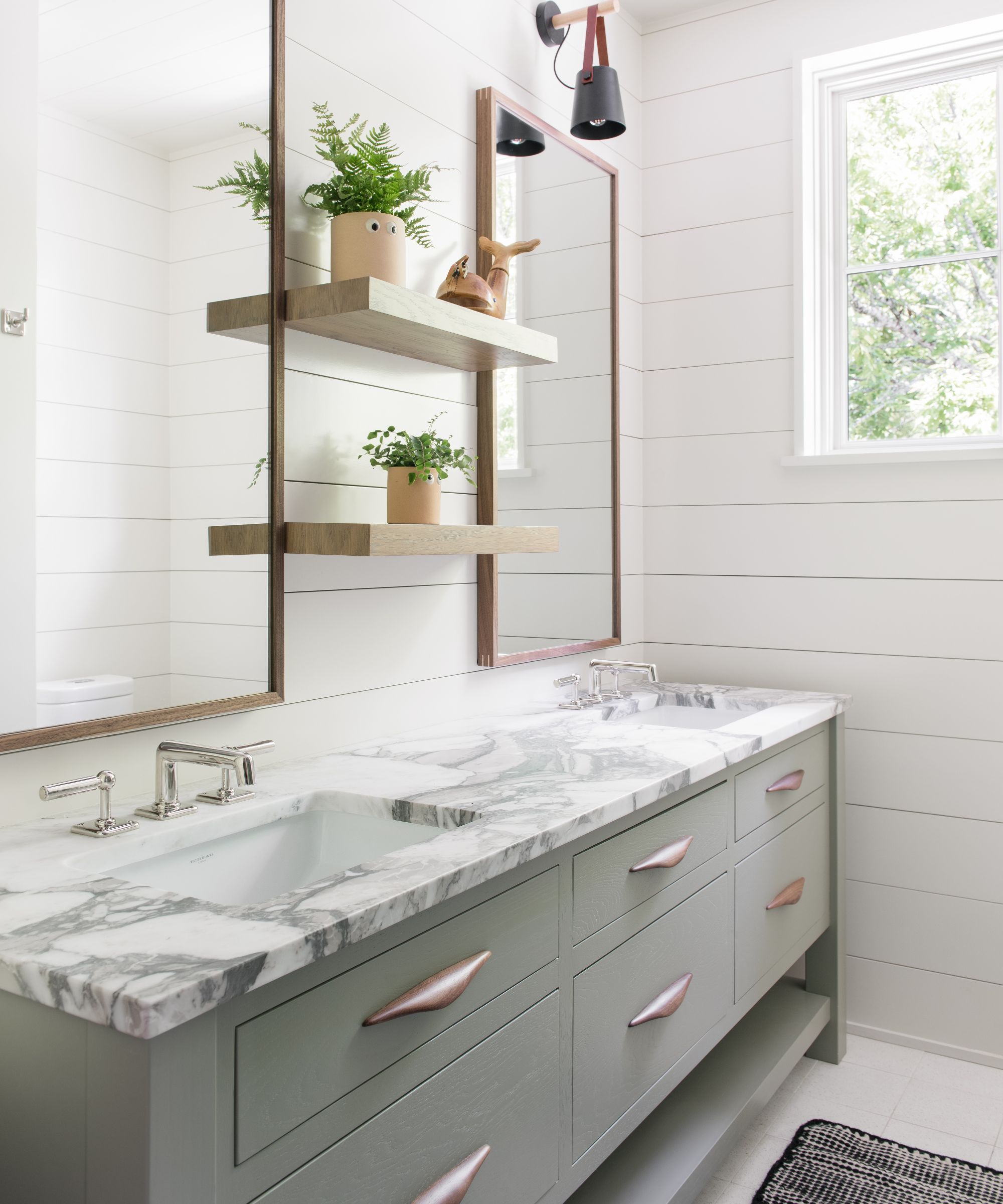
'For more stubborn clogs, using a plunger can be effective,' suggests plumbing expert, Rich Mullins. This solution is another great, non-harmful method for your drains to dislodge anything that may be causing your sink to drain slowly.
'To use a plunger, ensure that there is enough water in the sink to cover the plunger's rubber cup. Seal the plunger tightly over the drain and vigorously pump it up and down several times [or for around 30 seconds]. This action can create pressure and dislodge the clog. Be patient, as it may take a few attempts,' says Rich Mullins.
6. Use a snake or an auger
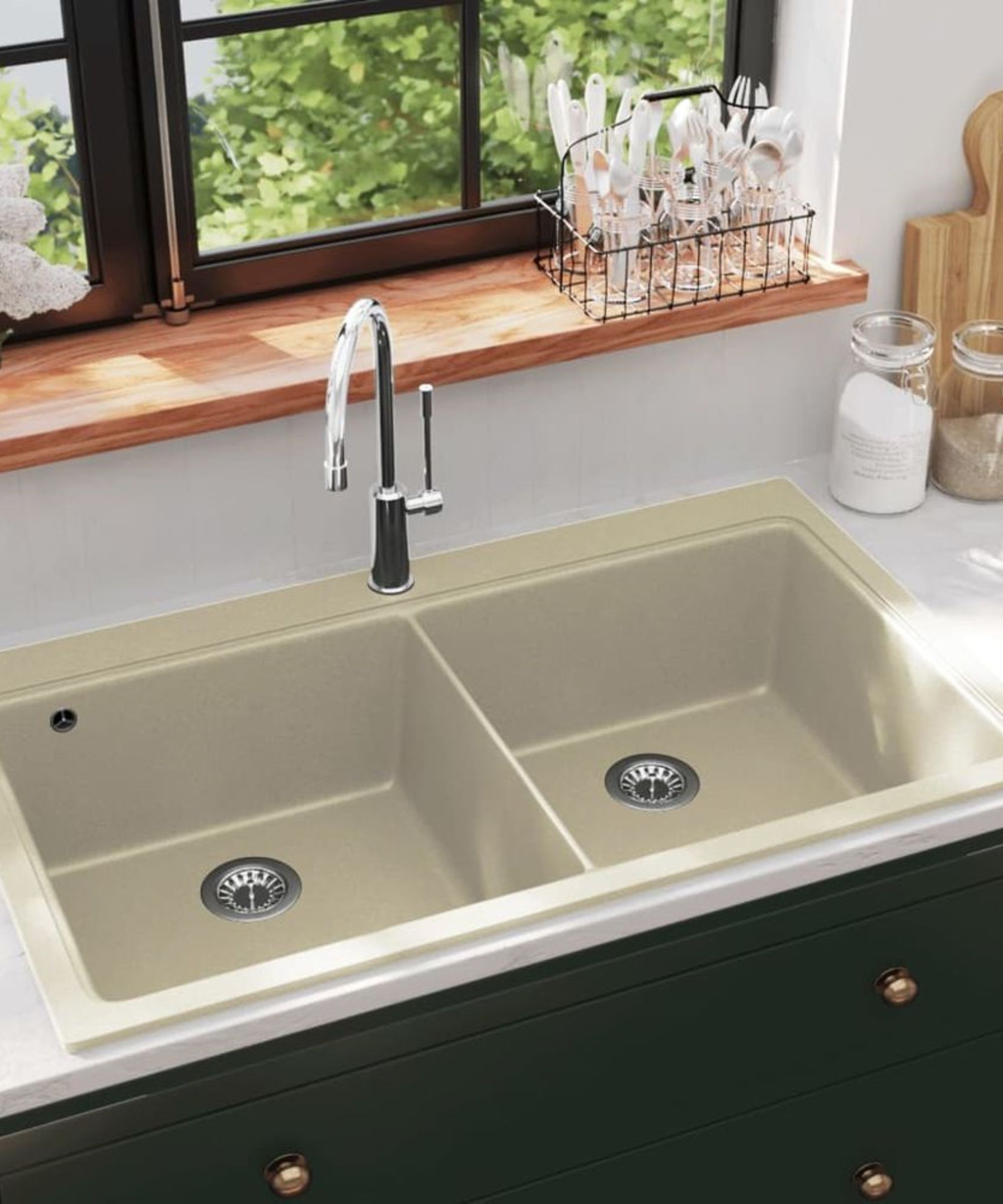
‘If your sink is still draining slowly, the next step to fix a slow draining sink is to use a snake or an auger to clear any stubborn clogs that are resistant to drain cleaners,' advises master plumber, Mark Morris.
'A snake or an auger is a flexible metal wire with a hook or a coil at the end that can reach into the pipe and pull out or break up any clogs. You can insert the snake or the auger through the drain opening or through the cleanout plug under the sink.’
Once inserted into the drain, rotate the snake or auger it while pushing it down the pipe. This can physically break up and remove blockages deeper in the pipe.
Be sure to read the instructions properly first so as to not damage your pipes.
We recommend this manual drain auger, from Walmart, or for convenient usage, this electric drain auger.
FAQs
How to safely check your sinks p-trap for blockages?
Josh Mitchell, plumbing technician at Plumbing Lab says, 'The U-shaped pipe (P-Trap) beneath your sink is designed to trap debris and prevent sewer gases from entering your home. When checking it, remember to:
'Turn off the faucet and place a bucket underneath to catch any water
spillage.
'Use a wrench to gently unscrew the P-trap. Be gentle; over-tightening can damage the threads.
'Once removed, it's not uncommon to find clumps of hair, soap, and
other debris. Clean it thoroughly, ensuring it's free from obstructions.'
What are the best cleaners for slow draining sinks?
Plumbing expert, Josh Mitchell recommends the best cleaners for slow draining sinks are bio-enzymatic cleaners. 'These are eco-friendly cleaners that contain bacteria that eat away organic material in a clog. They're a gentler alternative to chemical drain cleaners. However, they do take longer to work, so patience is key.' We recommend this Biokleen enzymatic drain cleaner, from Amazon.
In general, chemical drain cleaners are faster and more effective than natural ones, but they can be harmful to your drains, your health and the environment.
However, if nothing else seems to be working, the best chemical drain cleaners include liquid or gel drain openers, such as this Drano max gel from Amazon, or foaming drain cleaners, like this Drano foamer clog remover.
There are a few other causes that may explain your slow-draining sink.
Cleaning expert, Angela Rubin says, 'In areas with hard water, mineral build-up can be a common cause of slow drains. Remove the faucet aerator and clean it by soaking it in vinegar to dissolve mineral deposits. This can improve water flow.'
Alternatively, Josh Mitchell says, 'Sometimes, the problem isn't a blockage but rather a blocked vent. Vents help regulate air pressure in the pipes. If these vents get blocked (often by nests or debris), it can slow drainage. If you suspect this, it might be best to call a professional.'
If you've tried all of these methods and your sink is still draining slowly, there could be a more serious issue with your plumbing that requires the expertise of a professional plumber.
Angela Rubin provides one last tip: 'To prevent future slow-drain issues, be mindful of what goes down your sink. Avoid disposing of large food scraps, coffee grounds, or grease down the drain, as these can contribute to clogs over time. Consider using drain strainers to catch debris before it enters the drain,' and regularly clean your sink drain.

Lola Houlton is a news writer for Homes & Gardens. She has been writing content for Future PLC for the past six years, in particular Homes & Gardens, Real Homes and GardeningEtc. She writes on a broad range of subjects, including practical household advice, recipe articles, and product reviews, working closely with experts in their fields to cover everything from heating to home organization through to house plants. Lola is a graduate, who completed her degree in Psychology at the University of Sussex. She has also spent some time working at the BBC.